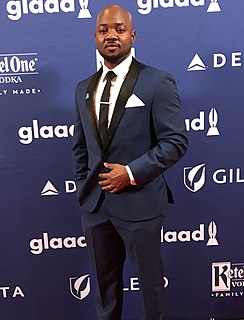A Quote by Dean Spade
As trans advocacy has institutionalized and developed, the context of the undemocratic nature of US non-profits and the ways that white, wealthy individuals can intensely influence the directions of advocacy have increasingly come to the surface for trans activists.
Related Quotes
One particular debate that I have seen play out again and again is whether trans people who have more traditional gender expressions or who "pass" more should be the ones who are represented. A recent advocacy guide focused on advocating around trans health care access produced by the largest trans advocacy organization in the US instructs readers that advocacy will be more successful if the message is delivered by people who pass as non-trans men and women.
When you hear anyone policing the bodies of trans women, misgendering and othering us, and violently exiling us from spaces, you should not dismiss it as a trans issue that trans women should speak out against. You should be engaged in the dialogue, discourse, and activism that challenges the very fibers of your movement.
I think it's really important to champion stories from trans women and trans women of color. That demographic has gone unheard and unsupported for so long, and it's really the community that's struck the hardest by a lot of issues. I try to do a lot of work to champion trans feminine issues and stories, but that said, I do have a personal and deep investment in seeing trans masculine stories reflected in culture. It is a little disappointing to me that trans men and trans masculine people have not really been part of this media movement that we're experiencing right now.
There are sharply different, competing models of what trans advocacy looks like - those that seek to follow the path laid out by the most visible and well-funded lesbian and gay rights organizations in the US and those that seek to use grassroots strategies, center issues of race and poverty, and aim to dismantle harmful institutions and conditions to redistribute life chances.
































